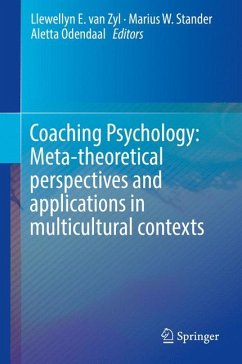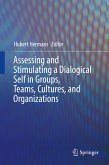This book offers detailed strategies, methodologies, approaches, practice guidelines, and policy implications effective for professional coaching on the individual, group and organizational level. It details empirical research-based and theoretical perspectives on coaching psychology as well as elaborates upon the fundamentals within multi-cultural contexts. First delivering a general introduction to coaching psychology before going on to examine specific psychological approaches towards coaching. The book also provides a conceptual framework for the use of psychometrics in multi-cultural coaching psychology. Next, the book presents meta-theoretical perspectives and applications for multi-cultural contexts, such as how to enhance leadership with group coaching from a system psychodynamic approach, how coaching can be used to support behavioral engagement and wellbeing, and how to utilize symbolic expressions, art, myths, dreams, and fantasies in coaching. This book provides practical tools towards critical self-reflective practice. Delivering the current state of the art research by presenting psychological coaching strategies theory and practice in one viewpoint. It also informs on the activity of various research approaches, thus interesting the broader student and academic reader. It will help all readers evaluate their current coaching competencies and, in the end, become better coaches. The book will also serve as an ideal resource for psychologists who want to migrate into coaching psychology.
Dieser Download kann aus rechtlichen Gründen nur mit Rechnungsadresse in A, B, BG, CY, CZ, D, DK, EW, E, FIN, F, GR, HR, H, IRL, I, LT, L, LR, M, NL, PL, P, R, S, SLO, SK ausgeliefert werden.









